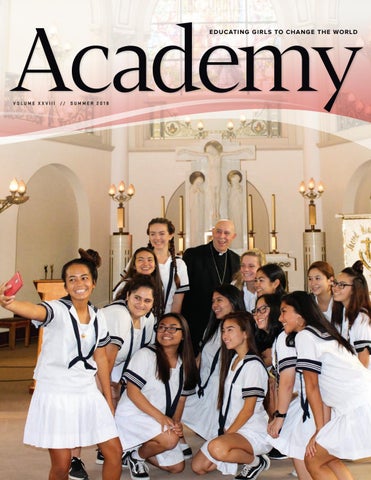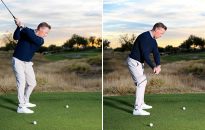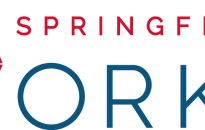When you observe Olympic coaches, they aren’t the ones racing or executing routines for their athletes. Their primary role is to establish an environment that allows athletes to excel at important events delineated on the yearly competitive schedule. Image Source: Clive Rose/Getty Images The influence of a remarkable coach on athletes is well recognized. They […]


When you observe Olympic coaches, they aren’t the ones racing or executing routines for their athletes. Their primary role is to establish an environment that allows athletes to excel at important events delineated on the yearly competitive schedule.
Image Source: Clive Rose/Getty Images
The influence of a remarkable coach on athletes is well recognized. They cultivate a setting in which athletes can hold one another accountable while providing encouragement and constructive criticism. Coaches can impact various aspects of an athlete’s readiness and resilience, their results in competition, and even the mental health of athletes. The evidence is undeniable: the dynamics of coaching practices and the mental toughness of athletes significantly contribute to the performance of winning competitors.
Image Source: China jumps into the pool to practice as coach Zhang Xiaohaun watches before the free routine final at the 16th Asian Games Guangzhou 2010 (Adam Pretty/Getty Images)
However, how does one coach the coaches? What strategies do those mentoring aquatic athletes employ to expand their repertoire of skills and knowledge, enabling them to transform an athlete’s potential and commitment into exceptional performances?
At World Aquatics, elevating coaching standards is fundamental to our development initiatives. This comprehensive methodology fosters excellence and boosts international engagement in aquatic sports.
Image Source: Jacqueline Simoneau of Team Canada celebrates with her coach after her routine in the Women’s Solo Technical Final at the Doha 2024 World Aquatics Championships (Adam Pretty/Getty Images)
A significant strategy for achieving this ambitious goal lies in World Aquatics’ coaching programs. In 2024, World Aquatics conducted 26 coaching workshops throughout 24 countries, attracting 493 participants. These workshops spanned all continents: eight in the Americas, six in Asia, five in Europe, five in Africa, and one in Oceania, culminating in a global webinar.
This complements the efforts of Olympic Solidarity, which provided eight technical aquatics coaching workshops in Africa, Asia, Europe, and Oceania in 2024.
World Aquatics developed and implemented these programs to enhance coaching acumen and abilities, fortify the global coaching community, and support the enduring growth of aquatic sports.
World Aquatics spoke with Olympian and coaching instructor Leilani Torres to gain insights into this process.
Image Source: Leilani Torres and Luna Aguilu of Puerto Rico perform in the artistic swimming duet free routine finals at Centro Olimpico during the 2023 Pan American Games in Santo Domingo, Dominican Republic. (Ezra Shaw/Getty Images)
Thank you for being with us! Where are you currently located?
I reside in Syracuse, Sicily, Italy. My husband, who used to play handball and is now a coach, has relocated us to numerous countries for his profession, which has presented a remarkable chance to gain insight into global sports.
In artistic swimming, you represented Puerto Rico at the Athens 2004 Olympics. What was that experience like?
It was extraordinary—truly beyond belief. My duet partner Luna Aguilu and I achieved the finest performance of our careers, a moment I’ll never forget. Representing Puerto Rico was historic; we were the first artistic swimmers from our nation to qualify for the Olympics, and none have done so since. That legacy holds significant meaning for me.
Image Source: Canadian team’s coach watching the Open Team Final at the 2024 World Aquatics Artistic Swimming World Cup – Super Final in Budapest (David Balogh/Getty Images)
Did your Olympic experience shape your coaching career?
Definitely. Having incredible coaches influenced my development. Sheilagh Croxon, who helped create the Artistic Swimming Coaches Certification Course, was one of my coaches. Her technical proficiency has motivated my instructing style. Additionally, I trained with Olympic coaches like Julie Sauvé and Laura Amorost, who encouraged me to think critically and strive for growth.
When did your transition into coaching occur?
I began my coaching journey in 2009, gaining certification from the Spanish Federation. Since that time, my focus has been entirely on coaching, particularly in mentoring artistic swimming trainers.
You have been leading World Aquatics’ Artistic Swimming Coaches Certification Courses. What do these programs involve?
The Level 1 course lasts roughly four days. Mornings focus on theoretical concepts in a classroom with presentations, video examples, and demonstrations. Afternoons involve practical application, with either coaches in the water or swimmers showcasing techniques. Coaches also complete a workbook and devise a detailed training session plan.
Image Source: Austria coaches cheer on their artistic swimming team at the 2015 European Games in Baku, Azerbaijan (Matthias Hangst/Getty Images)
What is the objective for coaches in Level 1?
Our goal is to ensure they grasp the essentials of session planning—ranging from warm-ups to technical routines, ensuring swimmer safety, and structuring the primary workout. It’s about establishing a solid foundation for effective coaching.
Who participates in these courses?
The courses welcome anyone interested in coaching artistic swimming. Many attendees are existing coaches from disciplines like rhythmic gymnastics, swimming, yoga, or dance. Recently, due to the increase in acrobatic elements in artistic swimming, we’ve attracted interest from gymnastics and diving coaches.
Where have you conducted courses so far?
I’ve led courses in Andorra, Poland, Serbia, and Colombia. Prior to these, I facilitated World Aquatics clinics in New Zealand, Barbados, Puerto Rico, and the Cayman Islands, some of which were conducted online.
What are your future plans as a coach and educator?
I’m focused on updating the Level 1 course content and providing meaningful training. I am dedicated to sharing knowledge and aiding coaches in their development, ultimately enhancing the sport.
Image Source: Trinidad Meza Rodriguez and Diego Villalobos Carrillo of Team Mexico celebrate with their coaches after the Mixed Duet Free Final at the 2024 World Aquatics Championships in Doha, Qatar (Maddie Meyer/Getty Images)
How does the Level 1 coaching course enhance a coach’s approach?
The course highlights the importance of understanding and valuing the swimmer in front of you. It focuses on identifying how each athlete learns, listens, and interacts. The objective is to tailor your coaching to their individual styles and requirements, fostering a healthier and more productive environment for both coach and swimmer.
We emphasize building the coach’s ability to listen and observe, enabling them to adjust their teaching methods according to each swimmer’s abilities and preferences. Such groundwork cultivates a constructive and growth-focused atmosphere.
Was there a pivotal moment in your athletic career that shaped your coaching philosophy?
Indeed. I distinctly remember preparing for my solo performance in 2006. I had poured everything—time, finances, and energy—into training with the finest in Spain at the High-Performance Centre in Barcelona. The effort was intense. At one point, I became completely overwhelmed, questioning whether I could continue.
My coach transformed this moment with a blend of tough love and perspective. She reminded me of all the hard work I had invested—securing the training, covering my expenses, and dedicated commitment. Then she said, “You know you can achieve more, right?”
That question urged me to face my fears rather than my exhaustion. It marked a pivotal moment showing me how mental obstacles can impede us more than physical challenges.
This experience underlined for me the significant influence coaches have in encouraging athletes to transcend their perceived limitations, assisting them in recognizing their potential—even when the undertaking seems insurmountable.
Image Source: An artistic swimming team trains underwater in 1977 (John Minihan/Evening Standard/Hulton Archive/Getty Images)
Having participated in the sport for over 30 years, how has artistic swimming transformed in that timeframe?
The discipline has experienced substantial evolution. Prior to the 2000s, the emphasis was largely on beauty, artistry, and the grace of swimmers in shiny costumes. Following that, it evolved into something more acrobatic and demanding, requiring routines to cover greater pool space and engage all judges.
In recent times, particularly after recent rule changes two years ago, there is a heightened focus on valuing complexity and accuracy. Previously, routines featuring simpler aspects might achieve higher scores due to subjective appreciation. Now, there is a clear scoring structure rewarding challenging elements such as spins and lifts. While this adjustment has posed challenges for coaches, it is necessary for the ongoing advancement of the sport and to highlight athletes’ exceptional abilities.
Image Source: Members of Team United States compete in the Team Technical Routine at the Paris 2024 Olympic Games (Clive Rose/Getty Images)
At the Paris 2024 Olympics, Team USA secured silver in a sport historically led by European and Asian teams. What was the significance of that result?
It served as a tremendous source of motivation for the Americas and other regions aiming for podium finishes. Observing an American team breach that dominance showcases the potential that exists and inspires nations throughout the continent.
We are witnessing promising talents in mixed duets from countries like Mexico and Chile, suggesting a hopeful future. These outcomes illustrate the importance of adapting to new regulations, strategically planning routines, and providing all athletes with the opportunity to thrive on the global stage.
Image Source: Team China practice in the warm-up pool before competing in the Women Team Free during the Budapest 2022 World Aquatics Championships in Budapest, Hungary. (Dean Mouhtaropoulos/Getty Images)
What guidance would you offer to aspiring artistic swimming coaches just beginning their journey?
The most valuable advice I ever received was to “KISS”—Keep It Simple and Smile. This acronym, introduced to me by my sister, has become a guiding principle for me. The sport can seem daunting as it merges technical precision with artistry, but it’s crucial to concentrate on one aspect at a time.
At a coaching course, we start with the basics. Establish a robust foundation, step by step. When you emphasize fundamental skills, everything else—complexity, artistry, and progress—will naturally follow. Apply the same approach when planning routines: focus on clear, attainable objectives instead of trying to manage everything simultaneously.
Coaches often feel overwhelmed by the field’s relentless changes, yet there is always an adaptation phase—be it new regulations, techniques, or training strategies. Concentrate on grasping the sport’s demands, understanding what athletes require to excel, and then formulate a training plan around those necessities.
Finally, don’t hesitate to seek help. Coaching need not be an isolated journey. Engage with colleagues, your board, or even your own swimmers.
You mentioned the importance of involving swimmers in the coaching process. Why is that essential?
It’s about fostering a sense of community. Coaches are there to support athletes, but athletes can equally assist their coaches. Engaging swimmers encourages a sense of shared responsibility and builds trust. Ultimately, it’s a collaboration—when everyone collaborates, it cultivates a more supportive and productive atmosphere.
Image Source: Team Australia competes in the Team Free Routine at the Paris 2024 Olympic Games (Clive Rose/Getty Images)
What are your aspirations for the coaches’ certification courses moving forward?
I take immense pride in our achievements with these programs and hope to see them flourish worldwide. Online tools are facilitating a broader reach. However, I wish to see even more accessible resources—like an independent library of materials available to anyone, irrespective of their affiliation with a club or federation.
On a personal level, since 2015, I’ve been imparting straightforward yet crucial coaching insights on social media to enhance accessibility. The aim is to equalize opportunities by equipping everyone with the necessary tools. If we continue to build on this foundation, it will genuinely elevate the sport.
What advice would you give to someone hesitant about enrolling in a certification course?
Just dive in—experiment, discover, and experience how it feels. Coaching is a fulfilling journey, and you’ll uncover so much about yourself in the process. Many new coaches feel daunted, but once they witness the transformations they can help facilitate, the motivation is incredible.
For example, when I mentor masters-age artistic swimmers, many initially hesitate to begin, thinking it’s too late. Yet, when they take the leap, they find they can achieve remarkable things—whether mastering a new skill or simply enjoying the water. The feeling of accomplishment is an immediate reward.
Image Source: Team France competes in the Team Free Routine at the Paris 2024 Olympic Games (Clive Rose/Getty Images)
Any final thoughts?
I am thankful to be part of this journey to advance the sport. Initiatives like these are crucial to our success, and the more we can disseminate knowledge and support one another, the stronger our community will grow.














